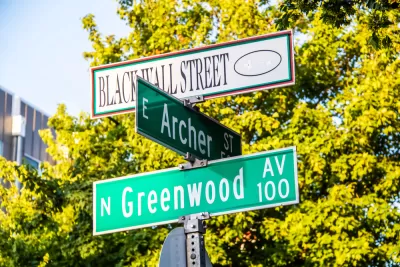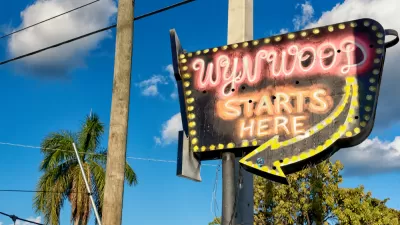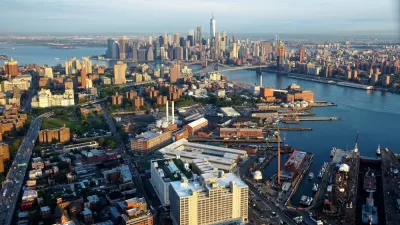Jose Richard Aviles says community comes first in the planner-community relationship.

Social work and urban planning have a closer relationship than one might think. Studying social work, Jose Richard Aviles came to understand that "the summation of individual trauma is often community trauma." Through that concept, Aviles began to treat the city as a client.
According to Aviles, the role of the planner is to heal the trauma held in communities by way of addressing the injustice at the core of the issue. Drawing on three concepts used in social work, Aviles describes how strengths perspective, countertransference, and case management can be applied in the planning field.
In Aviles' view, the community comes first. Rather than trying to "change" a community, planners should call on the strengths of community leaders. Similarly, planners shouldn't let their own training inflate their sense of purpose within a community. "Lived experiences should be leveraged and seen as truth, even when planners can't connect with them. Remember: we are of service, not to be serviced," says Aviles.
Aviles calls on planners to take a page from the social worker's book by spending more time in the "termination" phase of a project to double and triple check that everything is going according to plan.
"After a project is complete, planners should still be engaging with community members to ensure that the desired results have been reached and residents are content," Aviles writes.
Adhering to these principles, planners can work to undo racist policies and improve the quality of life of the communities with which they work.
FULL STORY: Planners as Therapists, Cities as Clients

Planetizen Federal Action Tracker
A weekly monitor of how Trump’s orders and actions are impacting planners and planning in America.

Restaurant Patios Were a Pandemic Win — Why Were They so Hard to Keep?
Social distancing requirements and changes in travel patterns prompted cities to pilot new uses for street and sidewalk space. Then it got complicated.

Map: Where Senate Republicans Want to Sell Your Public Lands
For public land advocates, the Senate Republicans’ proposal to sell millions of acres of public land in the West is “the biggest fight of their careers.”

Maui's Vacation Rental Debate Turns Ugly
Verbal attacks, misinformation campaigns and fistfights plague a high-stakes debate to convert thousands of vacation rentals into long-term housing.

San Francisco Suspends Traffic Calming Amidst Record Deaths
Citing “a challenging fiscal landscape,” the city will cease the program on the heels of 42 traffic deaths, including 24 pedestrians.

California Homeless Arrests, Citations Spike After Ruling
An investigation reveals that anti-homeless actions increased up to 500% after Grants Pass v. Johnson — even in cities claiming no policy change.
Urban Design for Planners 1: Software Tools
This six-course series explores essential urban design concepts using open source software and equips planners with the tools they need to participate fully in the urban design process.
Planning for Universal Design
Learn the tools for implementing Universal Design in planning regulations.
Heyer Gruel & Associates PA
JM Goldson LLC
Custer County Colorado
City of Camden Redevelopment Agency
City of Astoria
Transportation Research & Education Center (TREC) at Portland State University
Camden Redevelopment Agency
City of Claremont
Municipality of Princeton (NJ)





























